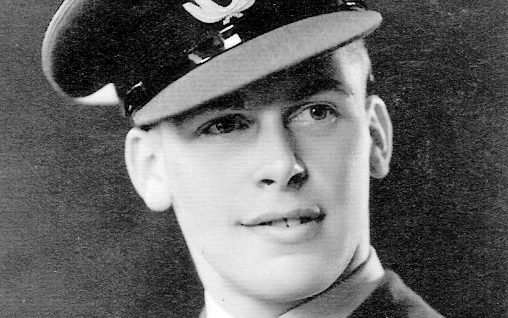Squadron Chief Percy Beake, who has died aged 99, flew Spitfires within the latter levels of the Battle of Britain and commanded a Hurricane squadron in help of the D-Day landings and the marketing campaign in Normandy.
Beake was an skilled fighter pilot when he was given command in Could 1944 of No 164 Squadron, flying the rocket-firing Hurricane. Working from airfields on the south coast, Beake and his pilots attacked targets on the Normandy coast in preparation for the Allied invasion. On D-Day the squadron was notably busy. On its third sweep of the day over the beachhead, Beake shot down a Focke Wulf 190 eight miles east of Caen, the squadron’s first air-to-air success.
On July 17 the squadron moved to a makeshift airstrip at Sommervieu, close to Bayeaux, from the place it flew “cab rank” sorties directed by a floor controller to assault enemy armour and troop concentrations. Supporting the Canadian Military, the Typhoons inflicted extreme harm on the retreating German forces however losses among the many squadrons had been excessive.
Beake led his squadron in the course of the intensive combating of the summer season months, together with the fierce battles round Falaise and in the course of the speedy Allied advance into Belgium that adopted. In September he was rested and was awarded the DFC. The quotation described him as a “top notch chief whose nice talent, thoroughness and untiring efforts contributed materially to the successes gained”. Just a few weeks earlier he had been talked about in despatches.
Percival Harold Beake, all the time often known as Percy, was born on March 17 1917 in Montreal, Canada, to English mother and father who returned to Britain eight years later. He was educated at Bristol Grammar College. He joined the RAFVR in April 1939 and commenced coaching as a pilot, being mobilised in August.
After finishing his coaching on Spitfires, in September 1940 he joined No 64 Squadron at Leconfield in Yorkshire earlier than the squadron moved to Biggin Hill after which to an airfield in Norfolk. He flew patrols within the last levels of the Battle of Britain.
In June 1941 he requested to hitch a squadron at Biggin Hill as a way to see extra motion. Flying Spitfires with No 92 Squadron, he participated in lots of sweeps and escort missions over northern France. Getting back from one among these sorties he crash-landed in a area in Kent having run out of gasoline.
In July Messerschmitt Bf 109s attacked him over the French coast and broken the radiator of his Spitfire. Shortly afterwards the plane’s engine seized and he was pressured to bale out. Trapped within the cockpit, he inverted the plane and fell clear to land within the sea 18 miles south of Dover. He clambered aboard his dinghy however looking out Spitfires failed to seek out him within the misty situations. A while later, by then affected by hypothermia, he was picked up by an air-sea rescue launch.He was given per week’s go away.
On September 24, Bf 109s engaged his formation over France and within the ensuing struggle he managed to break one. He lastly got here off operations in April 1942 to be an teacher at a fighter faculty.
He returned to the frontline in December when he was made the flight commander of a brand new squadron, No 193, which was forming with the Hurricane. The Brazilian department of the Fellowship of the Bellows, a global group shaped in the course of the battle to gather funds for the acquisition of plane for the RAF, paid for a number of the squadron’s plane.
Over the next months he attacked delivery, flew standing patrols over the south coast and, later within the yr, dive-bombed the V-1 websites underneath building within the Pas de Calais. On February 8 1944, throughout a sweep over Brittany, he engaged a Focke Wulf 190 and shot it down. In Could 1944 he was promoted to squadron chief to take command of No 164 Squadron.
After his time with the squadron, Beake joined the employees of the Fighter Chief’s College as an teacher and he was launched from the RAF in January 1946. He resumed his profession within the animal feed manufacturing enterprise with Robinson’s, which later turned a part of BOCM – British Oil & Cake Mills – and later Unilever. He turned the supervisor of the feed mills at Selby and later in Exeter.
In 2015, 71 years after his service in the course of the liberation of France, the French authorities appointed him to the Legion d’honneur.
Percy Beake’s spouse Evelyn (née Viner), to whom he had been married for 75 years, predeceased him by 5 weeks. Their two daughters survive him.
Squadron Chief Percy Beake, born March 17 1917, died June 25 2016














